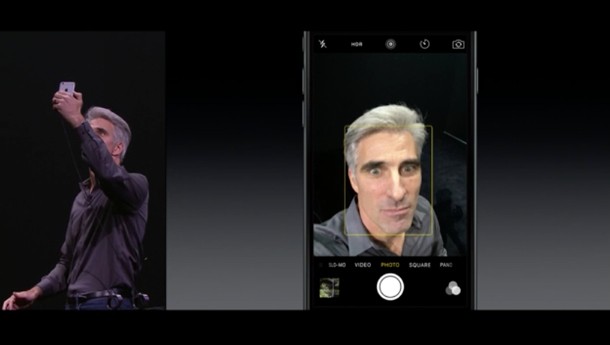Please support Game Informer. Print magazine subscriptions are less than $2 per issue
Apple: FBI Asked Us To Build A Backdoor To The iPhone

Apple has publicly denied an alleged FBI request to build a “master key” into a new version of the iOS operating system. In an open letter posted on the company’s website this morning, CEO Tim Cook decries what he calls a “chilling” request by United States law enforcement.
The request allegedly came following December’s shooting in San Bernardino, California. An iPhone was recovered during the investigation, and Apple says it has been complying with FBI subpoenas and search warrants, providing information it has at its disposal.
However, the company says it lacks the means to circumvent data encryption on the iPhone. “For many years, we have used encryption to protect our customers’ personal data because we believe it’s the only way to keep their information safe,” Cook writes. “We have even put that data out of our own reach, because we believe the contents of your iPhone are none of our business.”
Apple’s objection is that it cannot simply make a version of the operating system that will only affect a single device. Were it to comply, the software could be used on every other iOS device.
“The FBI may use different words to describe this tool, but make no mistake: Building a version of iOS that bypasses security in this way would undeniably create a backdoor,” Cook says. “And while the government may argue that its use would be limited to this case, there is no way to guarantee such control.”
In his letter, Cook says that the FBI is leaning on the All Writs Act of 1789. This has been previously used by law enforcement to compel a smartphone manufacturer to bypass a lock screen on a device. The request to create a backdoor, as Apple describes it, would impact every device.
“The implications of the government’s demands are chilling. If the government can use the All Writs Act to make it easier to unlock your iPhone, it would have the power to reach into anyone’s device to capture their data,” Cook writes. “The government could extend this breach of privacy and demand that Apple build surveillance software to intercept your messages, access your health records or financial data, track your location, or even access your phone’s microphone or camera without your knowledge.”
While Apple’s chief executive says he believes the FBI’s intentions are good, the results of complying would have widespread impacts on privacy and security.
“We are challenging the FBI’s demands with the deepest respect for American democracy and a love of our country,” he says. “We believe it would be in the best interest of everyone to step back and consider the implications. And ultimately, we fear that this demand would undermine the very freedoms and liberty our government is meant to protect.”
We attempted to reach the FBI for comment, however we were directed to a voice mailbox. The mailbox was full and not accepting additional messages. We will update should we succeed in reaching someone at the Bureau.
[Source: Apple]
Our Take
With smartphones carrying the bulk of our personal communications and private data, law enforcement is learning how to navigate new technologies. There is a wide gap between unlocking a specific device and creating a skeleton key that could compromise the security of every device in the wrong hands. Apple’s public denial of the FBI’s request not only sends a message, but it alerts the public to this important privacy conversation.










